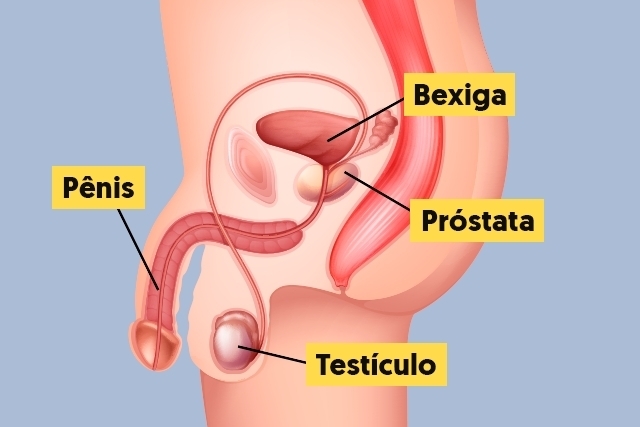ADVERTS
Cancer that occurs in the prostate (gland located below the bladder and surrounding the urethra - the canal that connects the bladder to the external orifice of the penis).
Data indicate that less than 10% of prostate cancers have any hereditary component.
ADVERTS
The likelihood of there being a hereditary component is greater in younger men.

Symptoms
Some symptoms are: lower back pain, erection problems, pain in the pelvis or knees and bleeding from the urethra. Most cases do not show symptoms until they reach a considerable size.
Diagnosis
In men over 50 years of age, a digital rectal examination and measurement of a blood protein (PSA) are performed, through a blood test, to find out if there is prostate cancer without symptoms.
ADVERTS
The digital rectal exam and PSA measurement do not say whether the individual has cancer, they only suggest the need or not to perform other tests.
Rectal examination identifies problems other than prostate cancer and is more sensitive in men with some type of symptom. PSA tends to increase with advancing age. Studies indicate that approximately 75 to 80% of men with increased PSA do not have prostate cancer. About 20% of men with symptomatic prostate cancer have a normal PSA.
Depending on the region of the prostate, the cancer may also not be palpable by rectal exam, so additional exams are adopted.
Doctors recommend a digital rectal examination and PSA measurement for all men over 50 years of age.
For those with a family history of prostate cancer (father or brother) before the age of 60, they recommend undergoing exams from the age of 45.
Only a doctor can advise on the risks and benefits of carrying out these tests. There is no evidence that periodic digital rectal examination and PSA measurement in men who do not present symptoms reduces mortality from prostate cancer.
Adopting healthy eating habits, not smoking, practicing physical exercise and seeing a doctor regularly help prevent this cancer and also improve overall health.
